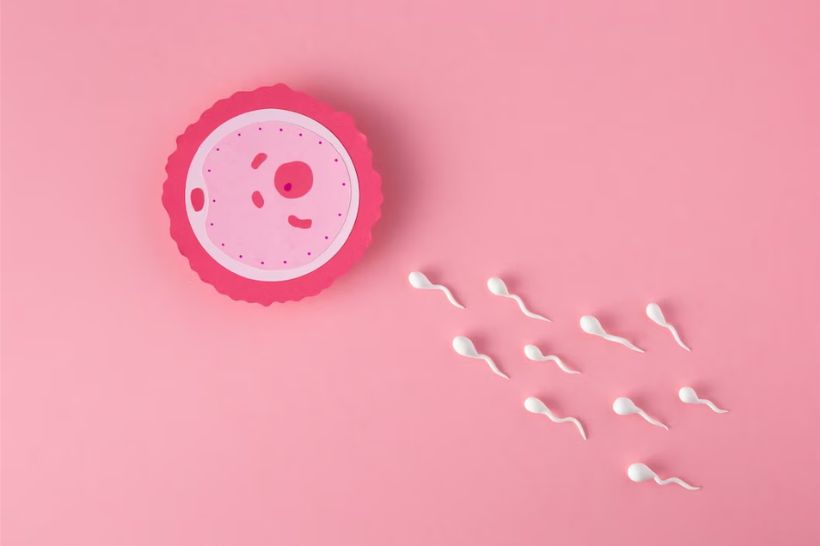How far would you go to bring home a new extension of yourself, a little bundle of joy? Couples battling infertility and related issues, who are ready to go through the incredibly tough IVF journey would know the answer to that.
We have spoken to experts, authors and parents who went through the journey to understand what it takes to bring to life, your dream. For the woman, especially, it is not a comfortable ride, at all. From a battery of tests to ultrasounds to hormone injections to maintaining a healthy lifestyle, they go through everything they can to witness the two pink lines, at the end of what might seem like a very dark tunnel.
A small percentage of women are lucky (if we can call them so), to be successful after their 1st IVF attempt. But what about the vast majority who aren’t? What does it take, from a physical and mental strength perspective, to go through the entire journey again, knowing well that the chances of success are low? The sheer hope and determination (not to mention the optimism) are what probably guides these superhero women to give it all that it takes.
In this KSP Exclusive, today we look at what happens when couples aren’t successful in their first IVF attempt.

Image source: CNBC TV 18
This report on CNBCTV18 suggests the IVF scene in the country is seeing a boom like never before with a reported 20% growth over the past 5 years. This has led to a surge in the number of IVF treatment clinics and hospitals in the country.

What Couples Must Remember: A Doctor Explains
Earlier we spoke to Dr Anjali Malpani, IVF Specialist on infertility, about what couples must remember about the success rates of IVF and why it is not always the woman’s fault.
The success rate on the first try at IVF for women younger than 35 is around 40% . However, that number drops steadily as the woman ages. The chronological age of the woman also significantly impacts the quality of the egg and. It starts to become more challenging beginning at around 35 years old. The success rates decline to around 13% by the time the woman reaches age 40.
Dr Anjali Malpani
What Causes An IVF Cycle To Fail?
- The woman’s age
- Quality of the embryo
- Poor egg or sperm quality
- Underlying infertility causes
- Body’s response to the medications
The lack of awareness on this topic and the lack of medical amenities to help couples realise their dreams were also added factors that caused a spike in the IVF failure rate, till even a few years back. But thankfully, that has changed over the years. Another huge factor that contributes to the blooming IVF scene in the country is the fact that India is one of the countries where the whole process is a lot more affordable than anywhere else in the world.
India is a forerunner in the world of medical tourism. IVF treatment in India is extremely affordable compared to what people would pay in their own country.
- India has state-of-the-art technology available, which costs so much more in advanced countries like the US, UK, etc.
- There is a surge in the number of experienced IVF specialists in the country that puts us on par with other countries.
- English-speaking staff is useful since the patients can converse. In other countries like Thailand and Mexico, language is a big barrier.

Image source: CNBV TV-18
When an attempt at IVF fails, the general mindset among the couples, especially in today’s times is to tweak the course of treatment, by getting more second opinions and opting for more aggressive treatments, instead of just giving up. And that’s a bright sign. Somewhere between handling the stress of going through the ordeal again, both emotional and financial, the possible ray of (distant) hope of going home with a bundle of joy is what keeps them going.
A recent study on Economist on this topic revealed the possibility that opting for more add-on treatments is a route wannabe parents are willing to take, to increase their chances of success in this tough attempt. However, there isn’t evidence to support that this benefits the larger group of people.
Some couples also have doubts whether and IUI treatment would benefit instead of an IUI. Here’s Dr Malpani explaining the two so you get your facts right.
What Not To Ask Someone Who’s Going Through The Journey
Rohini Rajagopal, Author of the best-selling book, What’s a Lemon Squeezer doing in my Vagina?’ wrote a heartfelt take on Kidsstoppress on what not to ask someone who is battling infertility. Find an excerpt from her article below.
The following are thoughtlessly flung around.
- So, when are you giving us the good news?
- Time to stop focusing on your career. You are in your thirties. The clock is ticking.
- Have you visited that clinic/doctor?
- What about IVF?
- Just relax. It will happen. You are thinking too much about it.
Even when it is not asked/said explicitly, silent incrimination can be felt. It is lurking just around the corner and when the opportunity strikes, it rears its head. Unsolicited medical advice, references to other couples who fought the same battle and now have a baby, directions for temples, priests, holy sites, and votive offerings. Or the flippant ‘Why don’t you just adopt?’. Not only do people undermine the individual’s choice and agency while asking the question but also reveal their ignorance about the adoption process in India. It is complex, lengthy, and expensive. It is not a – breezy walk through revolving doors, pick up a baby and breeze out – kind of activity.
We asked Dr Malpani how she handles her patients when they witness a failure on their first attempt.
I tell them not to get too upset as the success rate of IVF is not a hundred per cent. Very often there are no answers as to why implantation of the embryo does not occur. Sometimes embryos fail to stick to the uterus because their quality is not good or sometimes because the endometrium lining is not good.I tell these couples not to lose heart but to keep on trying and continuing with their treatments till they get pregnant. The cumulative success rate in 4 cycles of IVF is almost 90%!
The emotional baggage that a couple, especially the woman carries after a failed IVF attempt is what makes the process difficult to fathom. Especially, after a failed attempt. However, experts cite that the mental well-being of the woman influences the chances of success in this journey. That’s not all.
There have been many instances when women have conceived naturally after multiple failed IVF attempts. “If IVF is done because of unexplained infertility, endometriosis or PCOS, this is quite common. The hormonal imbalance in the wife gets corrected due to the hormonal injections given in an IVF cycle and they get pregnant on their own. Sometimes when IVF is done for a borderline low sperm count or motility, couples can get pregnant in their own bedroom, simply because the sperm counts in a man are variable”, says Dr Malpani reassuringly.


















